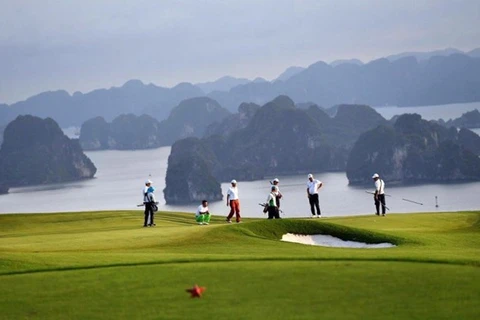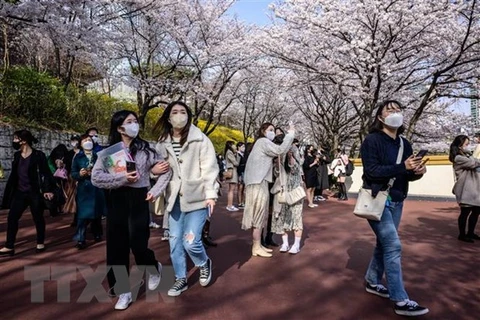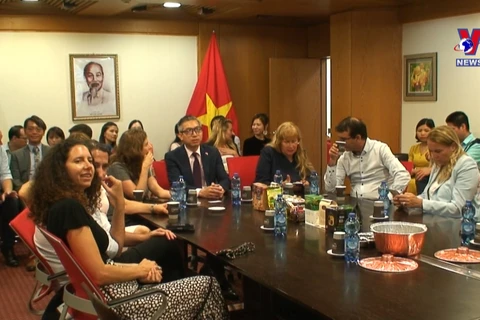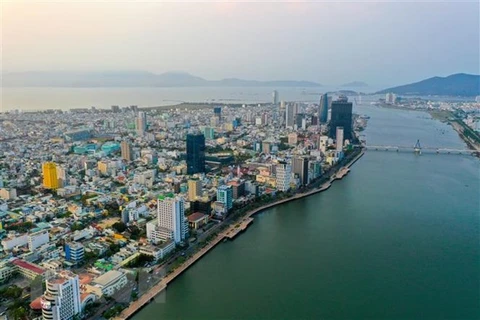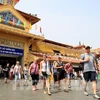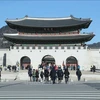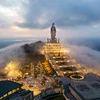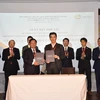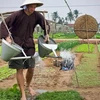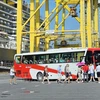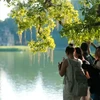Hanoi (VNA) - In the new recovery period following the COVID-19 pandemic, digital transformation is considered a lever of the green economy. Modern technology not only enhances users’ experience but is also present in the smart management systems and infrastructure of travel businesses to fight fraud or help them understand consumers’ behaviours.
However, Vietnam's tourism industry still needs more 'torchlights' of technology ecosystem developers to shorten the transformation distance and accelerate it in the right direction.
Travel to future with virtual universe
Daika Ginza, Founder and Chairman at UniWorld Ecosystem, said that the tourism industry can take full advantage of 'blockchain' infrastructure, because changing information on the database is verified based on the consensus mechanism of the system, helping to avoid hacker intrusion, restricting the risk of information falsification, simplifying the process and optimising operations and governance costs.
Experts emphasised that AI technology is present in intelligent management systems and infrastructure, to fight fraud or help understand consumer behaviour to boost interaction and suggestion. This technology helps to improve users’ experience in developed countries such as Germany, the US, and Japan.
In the new context of the post-pandemic green economy, promoting technology-based tourism digitalisation is a decisive trend for the speed of tourism recovery and development. According to experts, it is necessary to improve the quality of technology infrastructure to meet the development needs of the post-internet phase: the virtual universe.
The virtual universe is considered a breakthrough, catching up with the trend of world tourism with the ability to strongly inspire travel customers, as the virtual reality experience will give customers a clear schedule and visualise the journey to new and specific places, helping encourage and promote the decision-making process of buying, booking tickets and booking rooms, and travelling.
However, to apply the virtual universe effectively in Vietnam, there are some thorough considerations in investment and infrastructure reform.
Developing smart tourism ecosystem
Having 16 years of experience in building and developing technology application ecosystems in many important fields, Nguyen Duc Thanh, Deputy General Director of VietSens Technology Group JSC, stressed the need to connect the sector’s main subjects, including State management agencies, tourism businesses, destinations and tourists, in the digital environment, if technology products are to be developed following the smart tourism ecosystem model.
He proposed tourist sites to learn from the way the Van Mieu – Quoc Tu Giam (Temple of Literature Complex) Culture and Science Centre has transformed its operation management model and serves visitors with an e-ticket system and non-cash payment services. The landmark has contributed to improving operational efficiency in the direction of civilisation, modernity, transparency and science.
To speed up digital transformation, Thanh highlighted the importance of intensifying communications on the application of digital transformation products. According to him, throughout implementation and operation, the benefits of digital transformation are no longer theoretical.
It is necessary to issue standards on smart destinations and digital tourism businesses, and set targets for implementation each year, he said, suggesting travel businesses and guides, as well as other service providers, disseminate the application of digital transformation to tourists.
The reality shows that the path of tourism at this time can only be through digital transformation. The industry must master the skills and techniques to effectively implement and manage smart tourism services, and experts said that it is essential to focus on training and creating more jobs for the labour force that accounts for one-tenth of the jobs on the global scale./.


